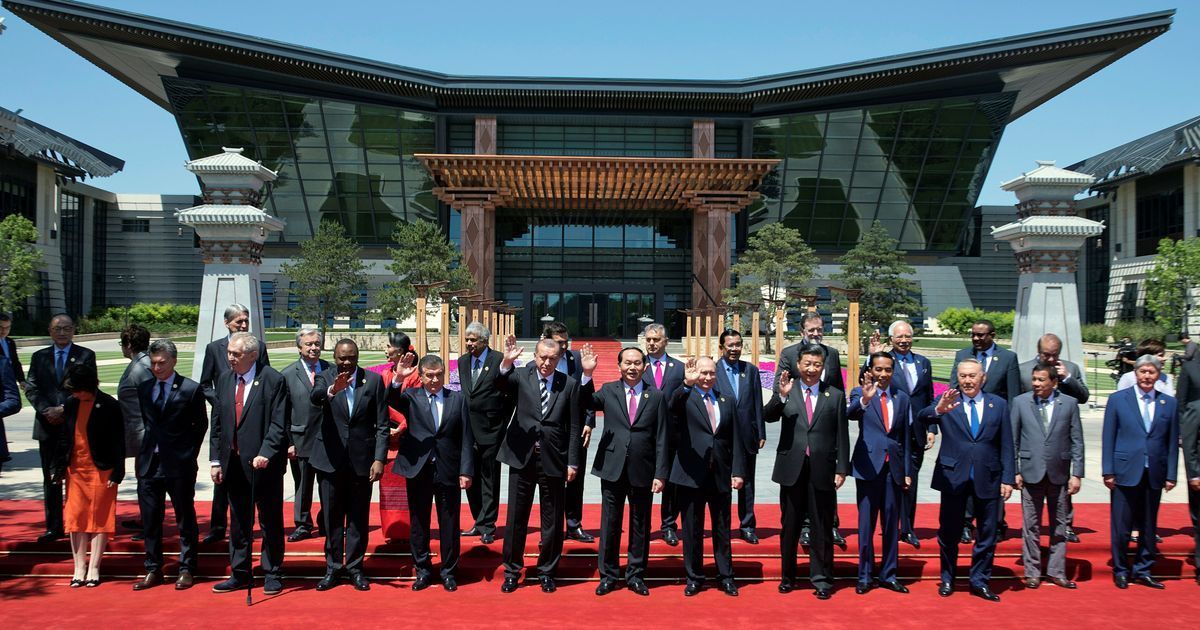Prime Minister Theresa May arrived in Beijing on Wednesday to beat the drum for deepening trade ties and showcasing Britain’s global ambitions. With the uncertainty of Brexit looming it is essential for the UK to open up new overseas markets as the general consensus is that trade with the EU will be taking a hit. China, the second biggest economy in the world, with its rapidly expanding middle class, offers the prospect of huge new business opportunities for UK firms. According to McKinsey and Co, the Chinese middle class would be around 550 million people by 2022. Britain like every other country wants, and arguably needs, access to this market. China for a long time has put up tariff and non-tariff barriers thereby limiting the access of foreign firms into the market. The major reason is to promote manufacturing in China, which acts as a growth stimulus to the Chinese economy.

Despite high double digit growth rates for almost 20 years the Chinese economy is slowing down with its neighbour India replacing it as the fastest growing major economy in the world. This is where the One Belt, One Road (OBOR) initiative comes in. Launched by XI Jinping officially back in 2013, the initiative, primarily motivated by concerns about slowing domestic growth, has now transformed into an initiative to boost China’s global influence. Although many countries have openly endorsed the project including French President Macron, stating France will play a “leading role” in the OBOR initiative, there are apprehensions amongst many countries.

US secretary of State Rex Tillerson while outlaying the policy at CSIS Washington for the Indo-Pacific region mentioned OBOR as an example of Chinese predatory economics at its best which US needs to counter. China is giving high interest loans to other countries which they will be unable to repay, in return China takes over their ports and develops them as Strategic locations to increase its influence in the Indian Ocean. The deal signed between China and Sri-Lanka during Sri-Lanka’s former president Rajapaska’s tenure is one such example. The new government of Sri-Lanka which is considered to favour India over China in the region, unwillingly had to surrender strategic locations to China, despite wide-spread local protests by Buddhists in the region.
The China Pakistan Economic Corridor (CPEC) which is a core project of OBOR which includes a $54 billion land route from China’s Xinjiang region to Gwadar, Balochistan province of Pakistan has also been marred with controversies. Balochistan province is an area which has witnessed armed independence struggle by the baloch people who are against the project.

During Xi’s last visit to Pakistan he raised concerns with the than Prime Minister of Pakistan Nawaz Sharif over delay in the implementation of the project due to conflicts in the region. This led to swift action by Pakistan to curb the rebellion which sometimes involved use of extreme force like using F-16 fighter jets to bomb the rebels. This led to widespread criticism and US govt. stopping supplies of fighter jets to Pakistan. The ultimate result was China becoming cautious and slowing down the implementation of CPEC.
During the OBOR summit hosted by President Xi last year which was attended by leaders of 29 countries, the absence of any delegate from India was a surprise to Beijing. The general expectation was despite India’s reservations regarding the OBOR, at least a junior delegation would be sent. The reservations of China’s neighbour arise from the fact that OBOR passes through the disputed territory of Gilgit Baltistan which is claimed by both Pakistan and India. All these controversies and delays marring the Belt and Road initiative is why President Xi needs support from countries like Britain more than ever.

Theresa May’s refusal to support Xi’s dream project directly isn’t a wise move and may cost Britain the free trade agreement it hopes to sign with China it so desperately needs post-Brexit. May’s refusal to confront China on human rights which has been hailed as a “brave move” in China’s state run media Global Times, yet refusal to endorse OBOR, is a contradiction in itself. Britain has hardly any role left in the Indo-pacific region and its refusal to endorse is hardly going to stop China from pursuing its strategy of geo-economics. How to handle an assertive China should be left to countries like Japan, India , US and Australia who have a stake in the region. The primary concern of UK’s Prime Minister should be how to open up a potential major market for British firms which will help UK regain its economic prowess in the post-brexit era.
Sagar Kar
Image: [Scroll.In]

